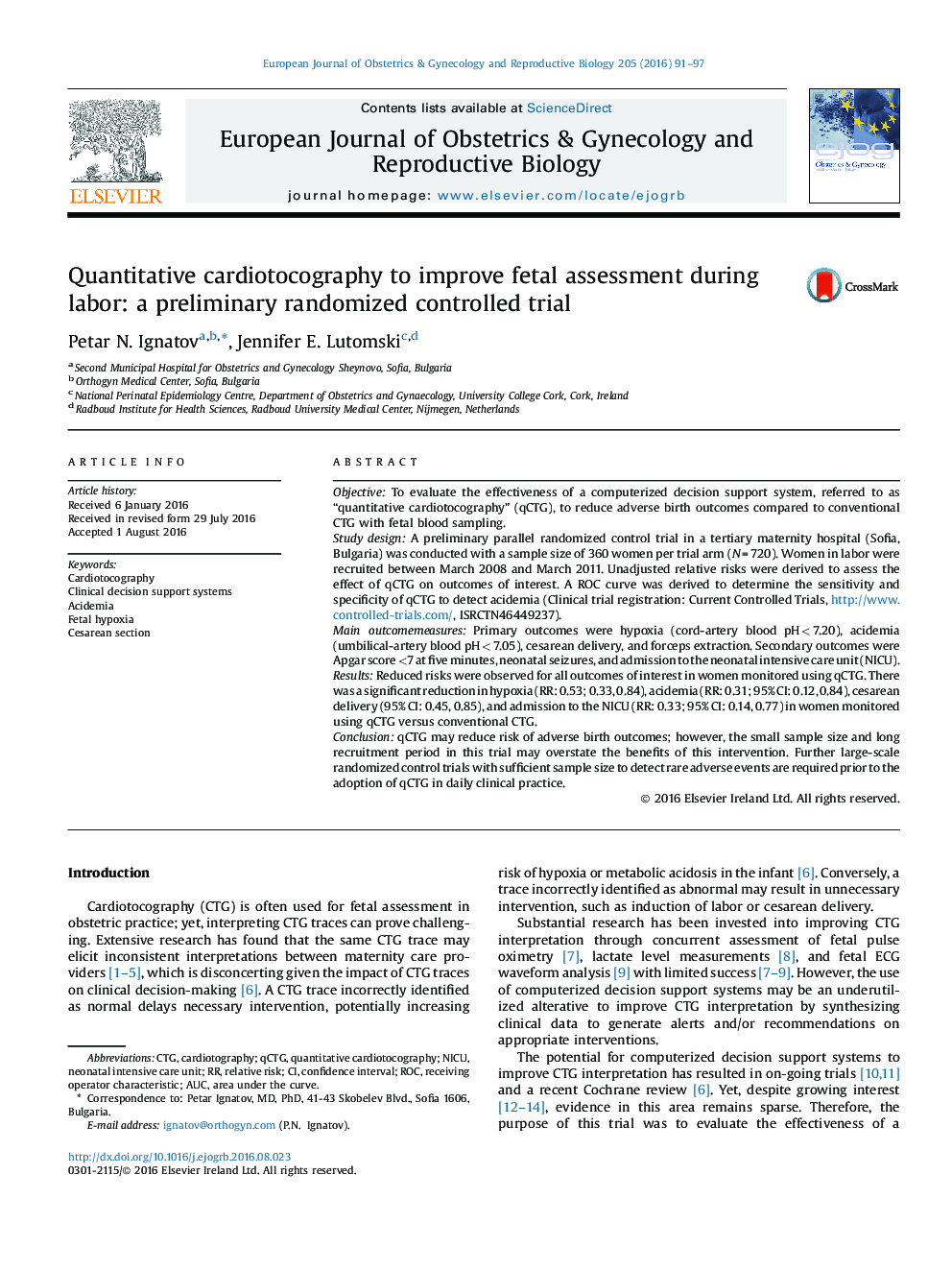| Article ID | Journal | Published Year | Pages | File Type |
|---|---|---|---|---|
| 3919313 | European Journal of Obstetrics & Gynecology and Reproductive Biology | 2016 | 7 Pages |
ObjectiveTo evaluate the effectiveness of a computerized decision support system, referred to as “quantitative cardiotocography” (qCTG), to reduce adverse birth outcomes compared to conventional CTG with fetal blood sampling.Study designA preliminary parallel randomized control trial in a tertiary maternity hospital (Sofia, Bulgaria) was conducted with a sample size of 360 women per trial arm (N = 720). Women in labor were recruited between March 2008 and March 2011. Unadjusted relative risks were derived to assess the effect of qCTG on outcomes of interest. A ROC curve was derived to determine the sensitivity and specificity of qCTG to detect acidemia (Clinical trial registration: Current Controlled Trials, http://www.controlled-trials.com/, ISRCTN46449237).Main outcome measuresPrimary outcomes were hypoxia (cord-artery blood pH < 7.20), acidemia (umbilical-artery blood pH < 7.05), cesarean delivery, and forceps extraction. Secondary outcomes were Apgar score <7 at five minutes, neonatal seizures, and admission to the neonatal intensive care unit (NICU).ResultsReduced risks were observed for all outcomes of interest in women monitored using qCTG. There was a significant reduction in hypoxia (RR: 0.53; 0.33, 0.84), acidemia (RR: 0.31; 95% CI: 0.12, 0.84), cesarean delivery (95% CI: 0.45, 0.85), and admission to the NICU (RR: 0.33; 95% CI: 0.14, 0.77) in women monitored using qCTG versus conventional CTG.ConclusionqCTG may reduce risk of adverse birth outcomes; however, the small sample size and long recruitment period in this trial may overstate the benefits of this intervention. Further large-scale randomized control trials with sufficient sample size to detect rare adverse events are required prior to the adoption of qCTG in daily clinical practice.
